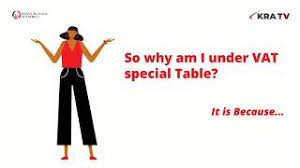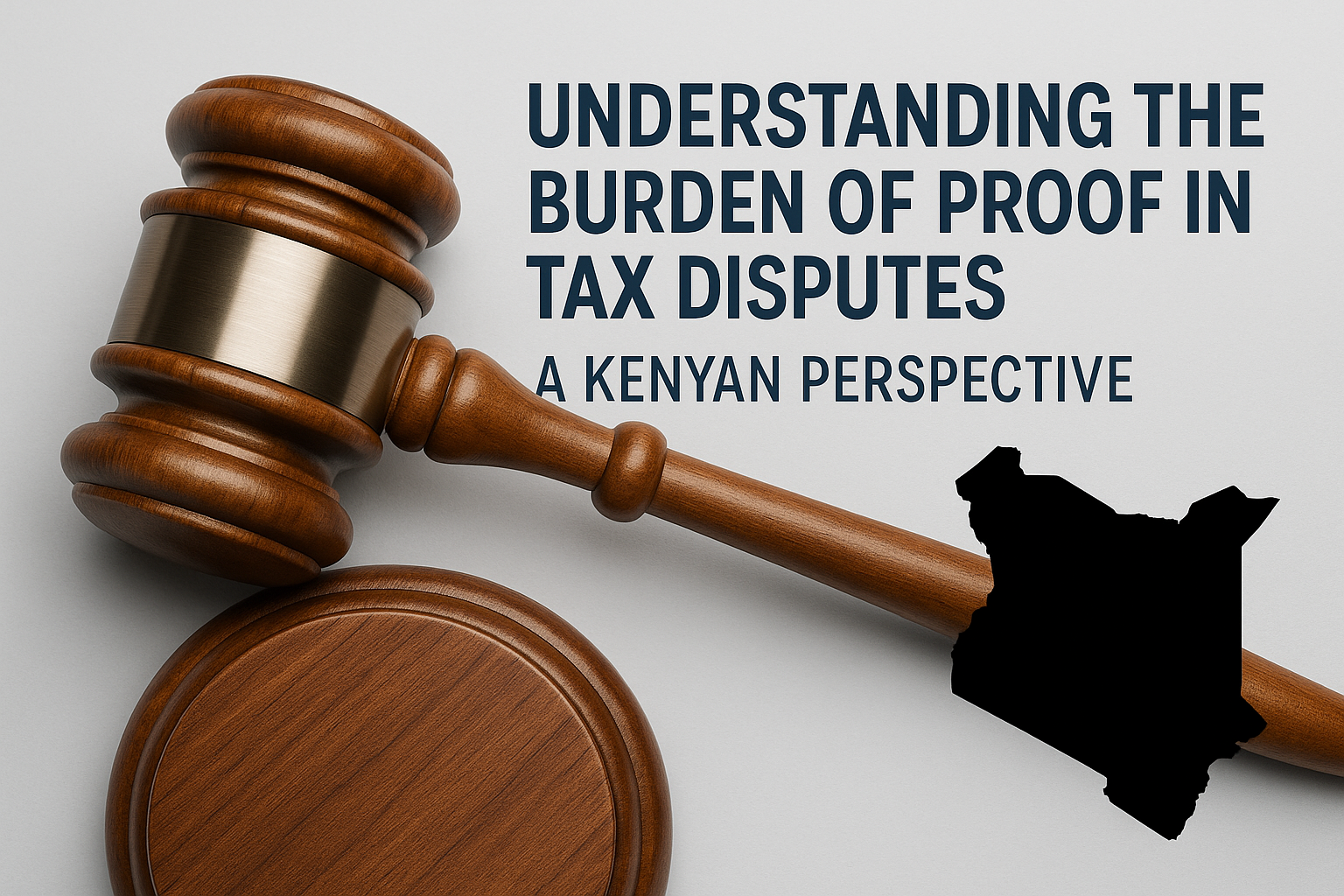There is a thin line between tax evasion and tax avoidance. This line is set to get even more blurred due to the aggressive activities on the two sides of the divide; the revenue authorities and the tax payers. In this article, we seek to understand the definition of both terms and their practical applicability on the Kenyan tax system.
Tax avoidance
Tax avoidance is defined under the Kenyan Tax Procedures Act to mean “a transaction or a scheme designed to avoid liability to pay tax under any tax law”. Tax avoidance is therefore the legal process of reducing one’s tax liability. This is achieved by taking advantage of deductions and credits provided by a legal system to reduce the amount of tax one would be expected to pay.
The goals of tax avoidance are:
- To minimise one’s tax liability by taking advantage of loopholes in a tax system
- Hedging of tax
- Use of loopholes within the law to gain an advantage
Tax evasion is the process of employing illegal schemes and tactics to intentionally avoid paying one’s true tax liability. Tax evasion involves deliberate underpayment of tax and making false declaration to a revenue authority.
The goals to tax evasion are:
- To reduce one’s tax liability by deliberately using illegal methods.
- Concealment of tax
- Manipulation of one’s accounts in a fraudulent manner
The outcome of both tax avoidance and tax evasion is the same i.e. reduced tax payment however there is a night and day distinction on both processes in law.
A case in point
In the of Republic v Kenya Revenue Authority Ex parte Majid Al Futtaim Hypermarkets Limited [2020] eKLR, the High court appreciated that there is a difference between tax evasion and arranging one’s affairs so as to reduce one’s tax liability within the limits of the law, also referred to as tax avoidance. The Court held that: “The Respondent has also not been able to prove to the required standard that the ex parte Applicant was involved in a tax evasion scheme. “This Court in this regard notes that there is a difference between tax evasion and arranging one’s affairs so as to reduce one’s tax liability within the limits of the law, and which was done by the ex parte Applicant in this case with the express approval of the Respondent. In addition, tax planning which involves the legal and reasonable use of available exemptions and reliefs should be distinguished from aggressive tax avoidance involving artificial schemes and transactions.”
Tax avoidance is not illegal
Tax avoidance may be immoral but not illegal. The High Court of Kenya in the case of Primarosa Flowers Limited v Commissioner of Income Tax [2017] eKLR, rendered that Primarosa Flowers Limited (“the Appellant”) was not guilty of any wrongdoing for entering into an agreement with its holding company that resulted in avoidance of payment of taxes. The legal provisions, as read, did not bring the Appellant within the ambit of taxation.
In the case of Primarosa Flowers Limited v Commissioner of Income Tax [2017] The Court held that: “It could very well be, as was found by the Tribunal, that the Appellant and its holding Company were out to avoid the payment of tax, given the nature of their agreement; nevertheless, in the absence of a deeming provision, in the nature of what was introduced by the Finance Act, 2011, it was not open for the Respondent to require the payment of withholding tax under Section 35(1) of the Income Tax Act in the absence of proof of payment of interest. By that amendment, the words “and deemed interest” were inserted immediately after the word “interest” wherever it occurred in paragraph (e). Needless to say that since the amendment did not carry with it retrospectivity, it cannot be applied to the instant situation.”
Tax evasion is outright immoral and illegal.
The Tax procedures Act Section 104 provides that a person guilty of an offence relating to tax fraud shall be liable to a fine not exceeding KES 10 M or double the tax evaded, whichever is higher or to imprisonment for a term not exceeding 10 years, or both. The cited provision provides that: ‘A person convicted of an offence under section 97 shall be liable to a fine not exceeding ten million shillings or double the tax evaded, whichever is higher or to imprisonment for a term not exceeding ten years, or both.’
Further, the law also provides that a tax agent is deemed to have committed an offence if he/she assists a taxpayer to create a tax avoidance scheme or abets or aides a taxpayer to evade tax. Section 92 (c). All methods that result in illegal avoidance of tax are termed as tax evasion.
Common tax evasion methods practised in Kenya.
- Submission of false returns
- Booking personal expenses as business expenses
- Omission of material facts on assessment
- Out of book transactions
- Manipulation of sales/receipts
- Use of fictitious casual wages entries
Section 97 of the Tax Procedures Act (“TPA”) determines a person has committed an offence in respect to fraud if he performs any of the following actions: Any person who, in relation to a tax period, knowingly—
- omits from his or her return any amount which should have been included; or
- claims any relief or refund to which he or she is not entitled; or
- makes any incorrect statement which affects his or her liability to tax; or
- prepares false books of account or other records relating to that other person or falsifies any such books of account or other records; or
- deliberately defaults on any obligation imposed under a tax law, commits an offence
Common tax avoidance strategies
Tax avoidance relies on use of legal methods to arrange one’s affairs in a manner that effectively reduces his/her tax liability; tax avoidance is legal.
- Expense classification from one category to another
- Use of tax heavens
- Use of debt capital over equity
- Treaty shopping
- Establishing companies in nil/low taxing jurisdictions
- Change of residency status
Though tax avoidance is generally considered legal, Section 85 of the Tax procedures act accords the Commissioner powers to apply a tax avoidance provision which penalizes a taxpayer double the amount of tax avoided.
Below are strategies employed by the Kenya revenue authority to crack down on tax evasion and excessive application of tax planning strategies:
- Deployment of technology e.g. introduction of systems such as iTax , the Integrated Customs Management System (iCMS) and Tax Invoice Management System (TIMS)
- Cargo scanners and trackers
- Continuous improvement and changes in tax laws e.g.
- Preferential tax regime definition expansion;
- Limitation of Benefit clause;
- Regulations on financial derivatives – deduction of losses to be disallowed where withholding tax has not been accounted for;
- Interest restriction related clause
- Minimum tax
Take away
In an environment laden with constant changes in the tax law and a more aggressive tax authority, it is advisable for organisations to retain a knowledgeable tax advisor. It is legally not mandatory to have a tax agent, but the benefits ride over the costs and the risk of gambling with the unknown. Reach out to us at FH Consulting for your tax advisory needs.














